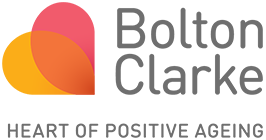Co‐creation of services to maintain independence and optimise well‐being: Learnings from Australia’s Older Women Living Alone (OWLA) project
Ogrin R, Dickins M, Johnstone G, Mortimer D, Iezzi A, Lowthian J. Co‐creation of services to maintain independence and optimise well‐being: Learnings from Australia’s Older Women Living Alone (OWLA) project. Health Soc Care Community. 2020;28:494–504. h t t p s : //d o i .org/10.1111/hsc.12882
Abstract
For many populations at risk of social isolation, including Older Women Living Alone (OWLA), existing services to maintain independence and optimise well‐being are difficult to access, unsuitable or unavailable.
Co‐creation is a strategy to develop ‘person‐centred’ services that meet the needs of individuals. We adapted an existing framework for co‐creation and used participatory action research methods, supported by an evidence base comprising a systematic review, analysis of routinely collected data and interviews, to develop person‐centred services for OWLA. This approach achieved co‐creation through an iterative process of consultation and review, involving a series of facilitated discussions with women living alone and stakeholders.
A total of 13 women living alone, aged ≥55 years, and 11 stakeholders representing service providers and advocacy groups, were recruited to participate in these discussions. Sessions with between three and five OWLA, were held across Melbourne. The information was compiled and presented to service stakeholders in a single facilitated forum, held in central Melbourne. Smaller facilitated sessions with OWLA followed, to review and discuss the collated service stakeholder input. The information from these OWLA sessions were again compiled and directed back to the service stakeholders for consideration and further discussion. The two groups came together for a final forum to prioritise the co‐created ten services that they believed would be feasible and would address unmet need to support OWLA maintain independence.
The process of co‐creation was time‐consuming and required considerable preparation to facilitate input from the target population. Small groups, gathering at convenient local locations, with transport support were essential in removing barriers to participation. However, co‐creation was a viable method of eliciting the women's preferences and developing services more likely to meet their needs.

